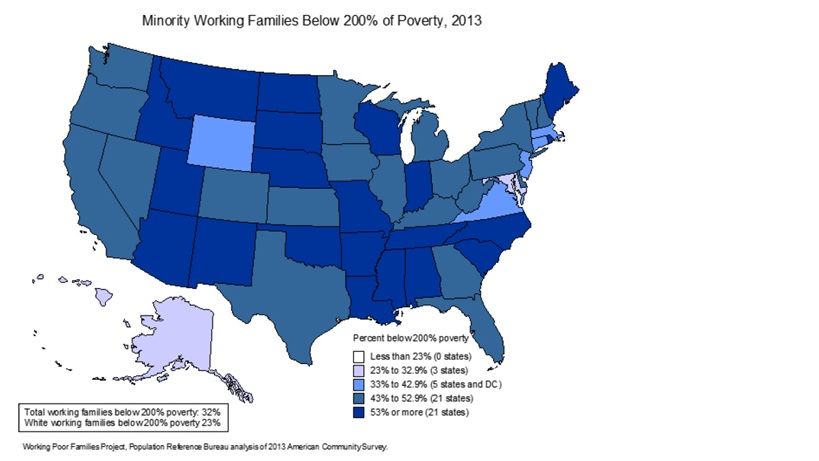A new report highlights a sharp racial/ethnic divide among working families in Kentucky. While the majority of low-income working families in the state are white, 52 percent of minority working families in the state are considered low-income compared to 30 percent of white working families.
The report, released by the Working Poor Families Project, shows that working families headed by racial/ethnic minorities across the nation were twice as likely to be poor or low-income compared with non-Hispanic whites in 2013 — a gap that has increased since the onset of the Great Recession in 2007.
In Kentucky, there were 147,009 low-income working families in 2013, meaning their total income falls below 200 percent of the Federal Poverty Level. Seventy-eight percent were white, and 22 percent were minority (12 percent were black; 6 percent were Hispanic; and 3 percent were “other”). Despite white working families being much more likely to be low-income in Kentucky than the national average, 30 percent in the state compared to 22.6 percent for the US as a whole, the gap between whites and racial/ethnic minorities in Kentucky is nearly as large as for the entire country.
These economic disparities between racial/ethnic groups present a critical challenge to ensuring economic growth and bringing opportunities to all workers, families and communities.
The report encourages states to address these economic disparities through policies that increase access to education and training while also making work pay.
These state policy recommendations include:
- Raising the minimum wage.
- Increasing need-based financial aid for postsecondary education.
- Expanding childcare assistance and other supports for students with children.
- Supporting programs that link education to career opportunities—for instance, promoting “career pathways.”
- Investing in a state Earned Income Tax Credit (EITC).
- Expanding access to Medicaid benefits, which Kentucky has done.
- Encouraging employers to provide paid sick leave for all workers.




